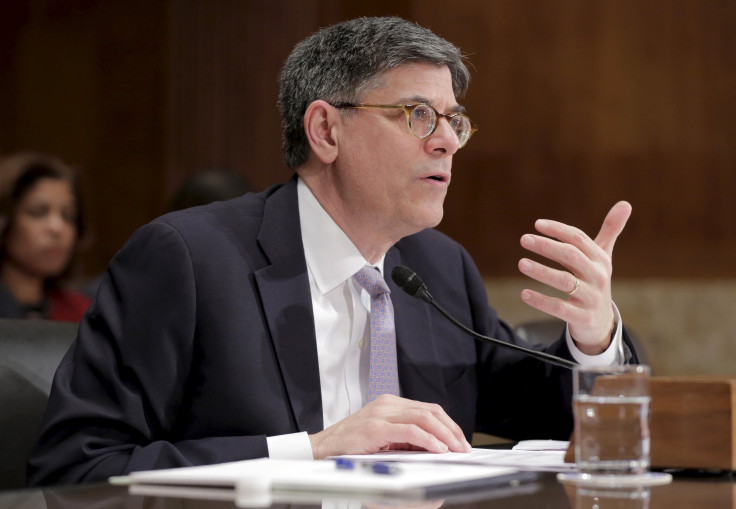US Issues New Rules To Curb Corporate Tax Inversion Deals

The U.S. Treasury Department on Monday took new steps to curb tax-avoiding "inversion" deals in which a U.S. company reincorporates overseas following the purchase of a foreign company, its latest attempt to dissuade a practice that slashes federal tax collection.
Shares of Dublin-based Allergan Plc (AGN.N), which has agreed to be bought by Pfizer Inc. (PFE.N) in the biggest inversion deal ever, slumped 19 percent in after-market trading after the Treasury news broke.
Under the new rules, there will be a three-year limit on foreign companies bulking up on U.S. assets to avoid ownership requirements for a later inversions deal, Treasury said in a statement.
In an inversion, a U.S. company typically buys a smaller foreign rival and reincorporates to the rival's home country, which moves the company's tax domicile, though core management usually stays in the United States.
Treasury, which had last introduced new rules in November to curb inversions, also is proposing tackling the practice of post-inversion earnings stripping with new limits on related-party debt for U.S. subsidiaries.
Earnings stripping covers a range of financial dealings that shrink the taxable U.S. profits of multinationals, including those that have moved their tax domiciles abroad in inversion deals.
Treasury Secretary Jack Lew said the actions would "further rein in" inversions, but said that only legislation in Congress could prevent such deals.
Such tax-avoidance schemes have long been a thorn in Treasury's side. The proposed $150 billion deal between Pfizer and Allergan, which would create the world's largest drugmaker, prompted renewed scrutiny.
New York-based Pfizer plans to redomicile in Ireland, and the companies expect to complete their merger in the second half of this year.
Last November, following the announcement of the Allergan-Pfizer deal, Treasury clamped down on inversions by limiting a U.S. acquirer's ability to set up a new foreign parent in a third country and to "stuff" assets into a foreign parent to meet post-inversion ownership limits.
© Copyright Thomson Reuters 2024. All rights reserved.











